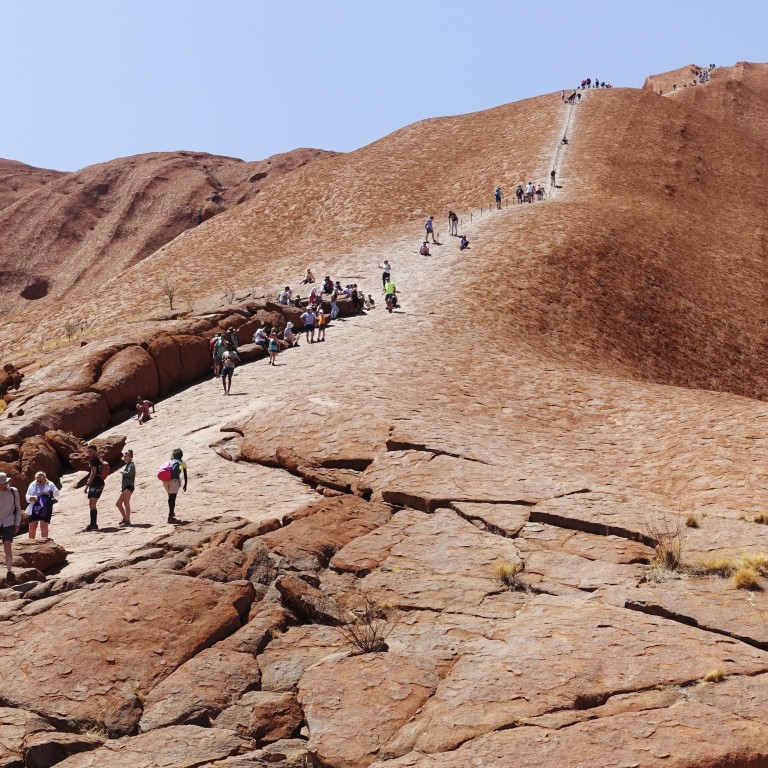
Uluru closed to tourists after indigenous group blocks access road, fearing visitors will spread coronavirus
- Indigenous communities in Northern Territory who locked down for months protested about tourists from Brisbane, a declared coronavirus hotspot, visiting site
- Their spokeswoman said the travellers posed an unacceptable risk to indigenous groups’ health, prompting authorities to shut the national park where Uluru is
Australia has closed the national park that is home to the revered indigenous site of Uluru after some in the community blocked an access route for fear that visitors could carry in coronavirus infections.
The country is battling a new wave of the deadly virus, with southeastern Victoria state reeling from hundreds of infections, while Indigenous Australians are seen at greater risk as they suffer a higher incidence of other health woes.
“It’s up to tourists to stay away if they come from hotspots or are sick,” says Thalia Bohl-Van Den Boogaard, the representative of a group of Indigenous Australians protesting against the visits.
A few protesters from the indigenous community stood on the main entrance road to the park on Tuesday, down from the previous day’s numbers of between 30 and 40 that had turned away tourists before the attraction closed, she says.

The group was concerned by the arrival in a nearby town of 39 people from the northeastern city of Brisbane, a declared virus hotspot, said Bohl-Van Den Boogaard, the chief executive of the Mutitjulu Community Aboriginal Corporation.
“People here have been locked in their communities for months and months to contain the spread, and now it’s not up to them to do the right thing,” she adds, urging visitors to keep away.
Tali Wiru, an open-air dinner overlooking Uluru, Australia, is a feast for the senses
About 350 tourists had visited the park following July’s reopening of the state’s borders since closure in March, during the first wave of the pandemic, Bohl-Van Den Boogaard says. Parks Australia, the state-run manager of heritage estates and nature sites, said it was working as part of a “collective response” to minimise the risk of contagion.
“At the request of the Mutitjulu Community Aboriginal Corporation, Uluru-Kata Tjuta National Park will be closed,” a spokesman told the Australian Broadcasting Corp.
The Unesco World Heritage-listed, 348-metre (1,142-foot) monolith, formerly known as Ayers Rock, where climbing was banned last year, is closed to sightseers.

An agency spokeswoman said the park would stay closed during discussions with the group and Northern Territory officials to ramp up health screening and testing at the local airport and Yulara, the town the Brisbane group visited.

